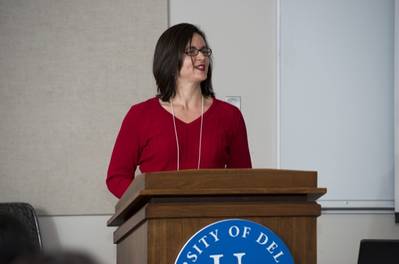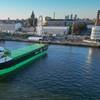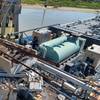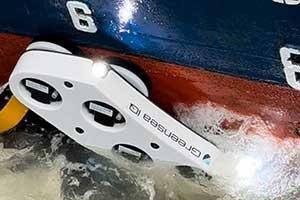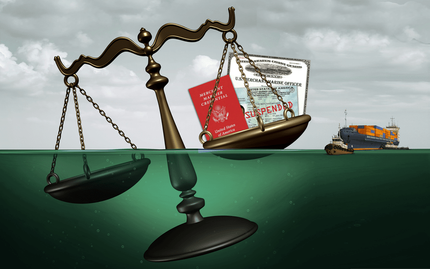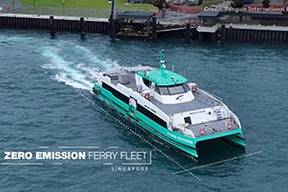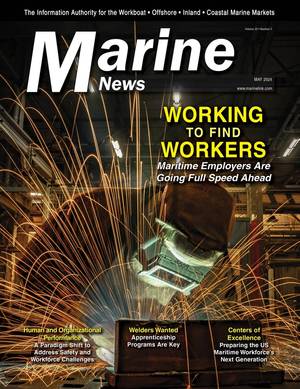UDEI Hosts Wind Energy Symposium
Experts explore future of wind energy research in two-day symposium at the University of Delaware Energy Institute (UDEI).
How would wind turbines in the ocean alter the wind flow? Is wind energy a practical solution for powering electrical grids?
Forward-looking questions such as those were addressed by experts in the field of wind energy at a recent symposium sponsored by the University of Delaware Energy Institute (UDEI). The two-day event, titled “The Importance of Meteorology to Wind Energy: Research Needs for the Next 10 Years,” convened researchers from academia, industry and government.
“We targeted trying to identify what the research needs are for the next decade,” said organizer Cristina Archer , associate professor of physical ocean science and engineering and geography in the College of Earth, Ocean, and Environment.
On the first day, presenters explained meteorological applications to inland and offshore wind energy generation, from forecasting wind power to computer modeling of the windy wakes that turbines create. Guest speakers included Luca Delle Monache of the National Center for Atmospheric Research, Mark Jacobson of Stanford University and Sang Lee of the National Renewable Energy Laboratory.
On the second day of the symposium, participants prioritized research needs that would help assist the offshore wind power industry in U.S. and global markets.
The most urgent need that the group identified was to have continuous, publicly available, meteorological observations offshore along the East Coast to better understand the marine environment there and validate model results. Refurbishing the existing — but damaged — meteorological tower at Cape Wind, near Nantucket Sound, was the unanimously recommended first step.
In addition, the researchers intend to address uncertainties in wind predictions, especially since wind forecasts are used for decision-making within electric utilities. Fulfilling these two needs, namely more offshore observations and better uncertainty characterization, would benefit at least three aspects of wind energy research: resource assessment, wind forecasting and reduction of turbine and wind farm wake losses.
The findings will be summarized in a report to help guide policy and funding agencies in the future.



